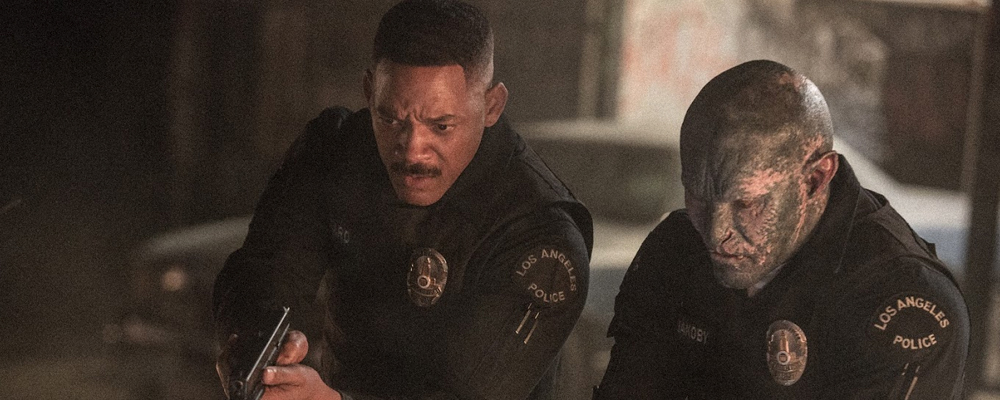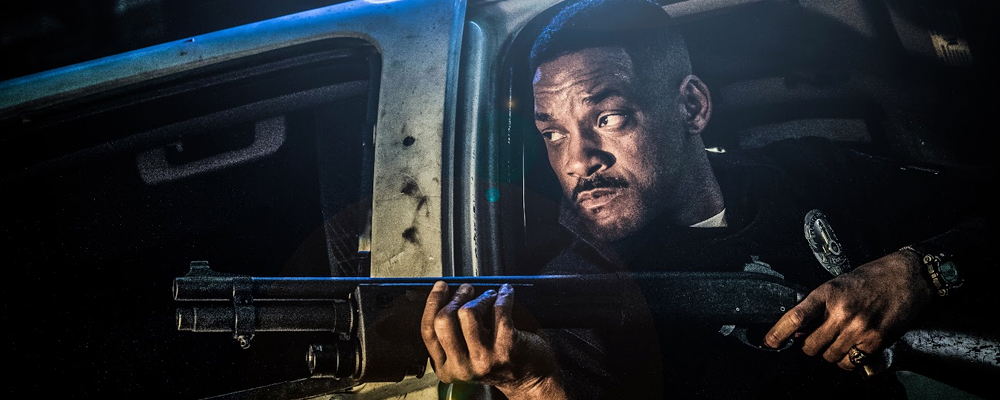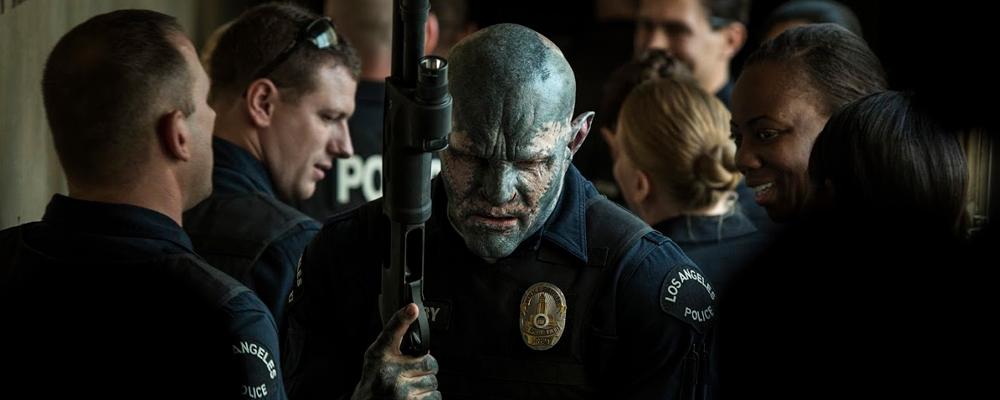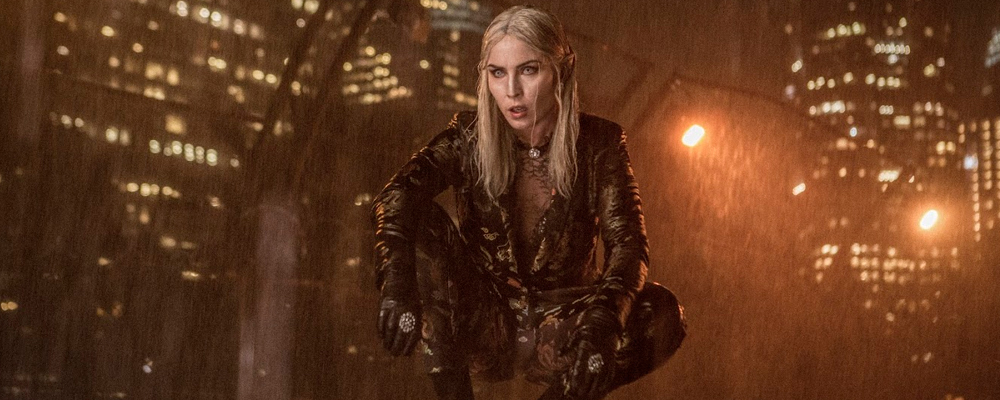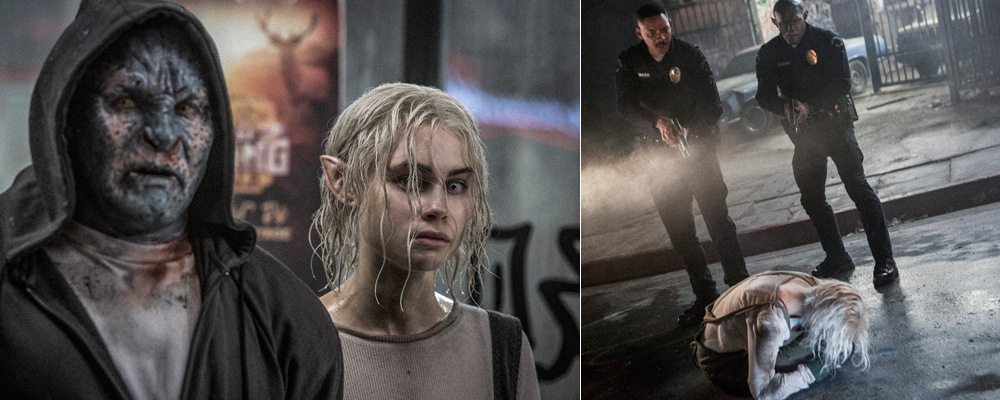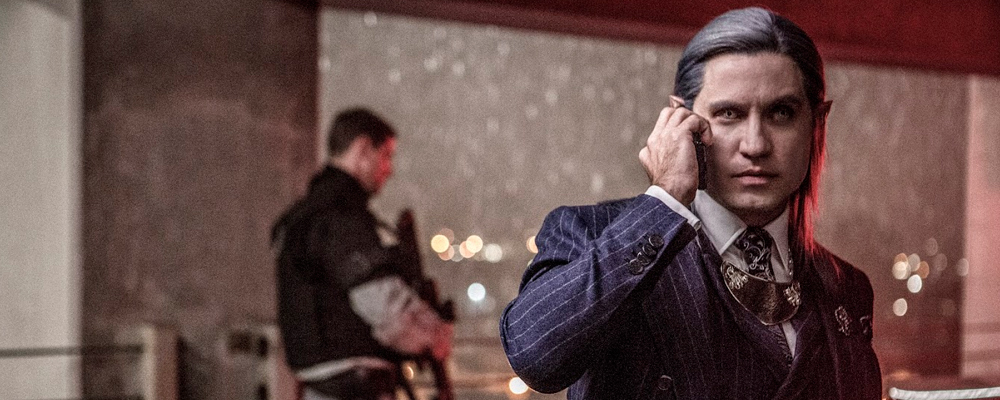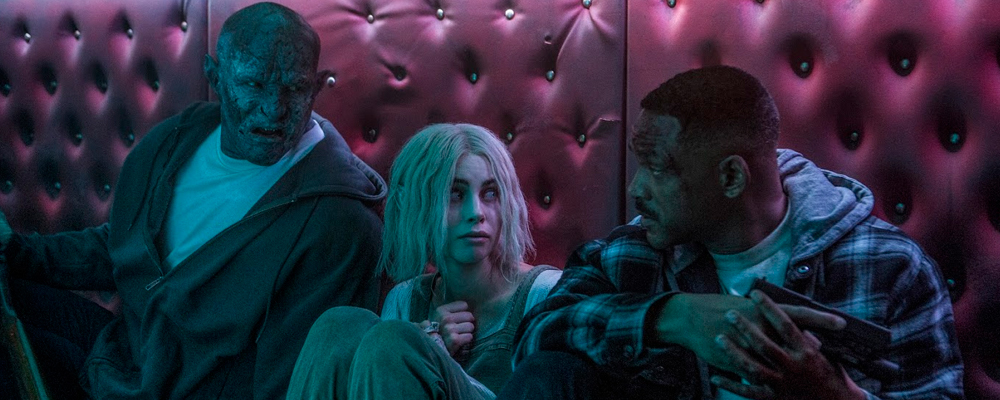Will Smith’s Charm Doesn’t Save Netflix’s ‘Bright’ From Moral Bankruptcy
Aaron Berke
It’s hard to think of a recent movie title as painfully ironic as Netflix’s “Bright.” Almost every scene takes place at night, while the story emphasizes urban violence, class warfare, sadistic violence, and a group of humans and magical characters with no moral compass. “Bright” is unequivocally dark. It’s also morally depraved, with a story that combines magical characters with real social issues like racism and police brutality. This could have been an interesting combination in the right hands, but for director David Ayer and screenwriter Max Landis, “Bright,” is simply an opportunity for gratuitous violence, nudity, and blatant genre tropes that awkwardly merge gritty action with epic fantasy.
Will Smith plays Daryl Ward, an LAPD cop with an Orc for a partner. The world of “Bright” features men, Orcs, Elves and Fairies living side by side, with Elves at the top of the food chain and the Orcs at the bottom. Because of a 2,000 year old history in which ancient Orcs chose evil, modern Orcs are now subject to heavy prejudice. Chief recipient of this prejudice is Ward’s partner, Nick Jakoby (Joel Edgerton) an Orc who the human cops despise and his own people consider a traitor.
Ward reluctantly partners up with Jakoby. Ward is not quite as racist as every other cop, but still holds a grudge because of a time that he was shot by an Orc thief who Jakoby allowed to escape. Eventually, Ward and Jakoby are caught up in a plot to steal a magic wand, which can only be wielded by Elves (and the occasional human) known as Brights, who were chosen by magical prophecy. Ward and Jakoby must safeguard a young Elf named Tikka (Lucy Fry), who’s hiding a magic wand from her sister, Leilah (Noomi Rapace). Leilah intends to use the magical power to awaken the ancient Dark Lord who corrupted the Orcs 2,000 years ago.
So… yeah. If you think that mess of a description might somehow lead to an interesting movie buried beneath convoluted rubble, think again. The only thing more headache-inducing than attempting to break down “Bright’s” plot is watching it unfold on screen. The movie starts out like it’s going to be a police procedural that simply uses the Elves, Orcs and men as a commentary on social relations in America. Instead, the presence of Elves and Orcs apparently compelled David Ayer to hijack his own movie 45 minutes in and turn into an urban “Lord of the Rings” rip-off. Both concepts might have been interesting in another director’s hands. But Ayer can’t seem to decide whether he’s making “Training Day 2” or “Suicide Squad 2.” “Bright” ultimately plays more like the latter because of its fantasy elements, but also because of its inherent unlikability, morally compromised characters, and an overall fatalistic approach that merely leaves a bad taste in the viewer’s mouth.
Any commentary on race or the relationship between police and citizens is completely drowned out by the chaotic cluster of action scenes that overtake the mid-section of the film. Moreover, the film’s attempt at social commentary is wrecked because the magical creatures themselves fall into racially stereotyped categories. Aside from Jakoby, the Orcs are either urban thieves and hoodlums, or part of an organized crime cartel. The Elves are all white people who walk around in fancy suits and dresses. They’ve all set up shop in a Park Avenue-esque hub separated from the rest of LA. The movie never bothers to break down this hierarchy or alter it in any way. It simply exists from beginning to end, leaving behind the unpleasant sensation that the movie is enforcing stereotypes rather than critiquing them.
If only it were possible to ignore the ineffectual social commentary and simply enjoy “Bright” as an action film. But action films require genuine heroes and characters to root for. Will Smith usually has no problem providing this role, but Landis has written Ward as surprisingly inconsistent and borderline unlikable. From the beginning, Smith’s Ward is a flawed protagonist. When Jakoby shows up in Ward’s neighborhood, he makes it perfectly clear that he doesn’t want an Orc anywhere near his house. While Ward’s attitude toward Jakoby does soften eventually, he still maintains an air of superiority towards the Orc throughout the film.
One particular scene highlights the problem with Ward’s morality, and the film’s in general. When Ward and Jakoby find a magic wand, a group of racist cops decide they’re going to steal the wand and kill Jakoby, and they demand that Ward comply. Instead of outright refusing, Ward marches outside, pulls his gun on Jakoby, and demands to know why he let the Orc thief go the night Ward was shot. Only when Jakoby offers a satisfactory explanation does Ward decide not to murder him, instead turning around and firing on the cops.
That’s right, folks. Our “hero” was actually thinking about murdering his partner at the prompting of racists. Ward only decides otherwise when Jakoby gives him the information he wants. This is precisely why “Bright” is so morally compromised. Every single cop is awful and corrupt, and even Ward’s morality is based around his own sense of self-righteousness. David Ayer’s viewpoint is entirely from Ward’s perspective in this scene, giving the sense that the film approves of Ward’s actions because Ward is a man and Jakoby is an Orc. In other words, Ward is racially superior to Jakoby. Not even Will Smith’s charm can save his character from moral bankruptcy.
Jakoby is the moral center of the film, and the only likable character. But his strength is frankly undermined by Smith’s star power, which Ayer wields (through no fault of Smith’s) like a weapon. Whenever Jakoby and Ward have a dispute, Ward is always given the edge. Take the moment when Ward hands Jakoby a ticking bomb. Jakoby asks why he has to be the one to hold it, and Ward shrugs and simply says “just in case.” In other words, if the bomb explodes, Ward shouldn’t be the one to hold it, because he’s the protagonist. Jakoby should, because he’s an Orc, which makes him the de facto sidekick and thus expendable. In Hollywood fashion, it’s like Ward’s status as “man” is equivalent to white male protagonist, while Jakoby’s status as “Orc” is equivalent to minority sidekick. In a better movie, granting a black actor the superior role in this dynamic could have been a triumphant role reversal. But “Bright” simply doubles down on Hollywood’s racial protagonist/sidekick model, giving the impression that it’s aware of the stereotype but has no interest in altering it.
The movie doesn’t do women any favors either. Tikka is the classic damsel in distress, and not even her Elven powers can save her from becoming a helpless stereotype. Tikka doesn’t utter a single word until the final half hour of the film. She spends the earlier portion achieving new levels of female helplessness, sitting around in distress while the male heroes debate what to do with her. The other prominent female, evil Elf Leilah, at least has a chance to fight. Noomi Rapace’s distinctive presence allows her to steal a few scenes, but she remains utterly superficial. With her blonde hair, Elven delicacy, fashionable suit, and lethal fighting moves, Leilah is like Ivanka Trump on steroids. It feels like the movie wants to use her to make a half-baked commentary on capitalist excess, but like every other attempt at commentary, it’s lost in a haze of gratuitous violence and murky storytelling.
“Bright” comes across as a movie utterly bereft of soul. The initial intrigue of seeing racial and class tensions portrayed by magical creatures quickly fades once we realize that the movie has nothing to say. “Bright’s” only use for these characters is to reinforce Hollywood stereotypes that spit in the face of real racial issues, which the movie completely fails to critique. “Bright” doesn’t even work as pure entertainment, because it’s impossible to root for anyone other than Jakoby, who winds up becoming too marginalized to matter. The result is an ugly movie that’s utterly unpleasant to watch; a category of film that unfortunately has overtaken David Ayer’s career since “Fury.” For Will Smith, “Bright” marks another career mistake that not even his usually infallible charisma can save. The concept of fusing “Lord of the Rings” with “Training Day” is an interesting one, and perhaps one day a different group of talent will get it right. But “Bright” is a film that should be tucked away in the dark.
“Bright” releases Dec. 22 on Netflix.

